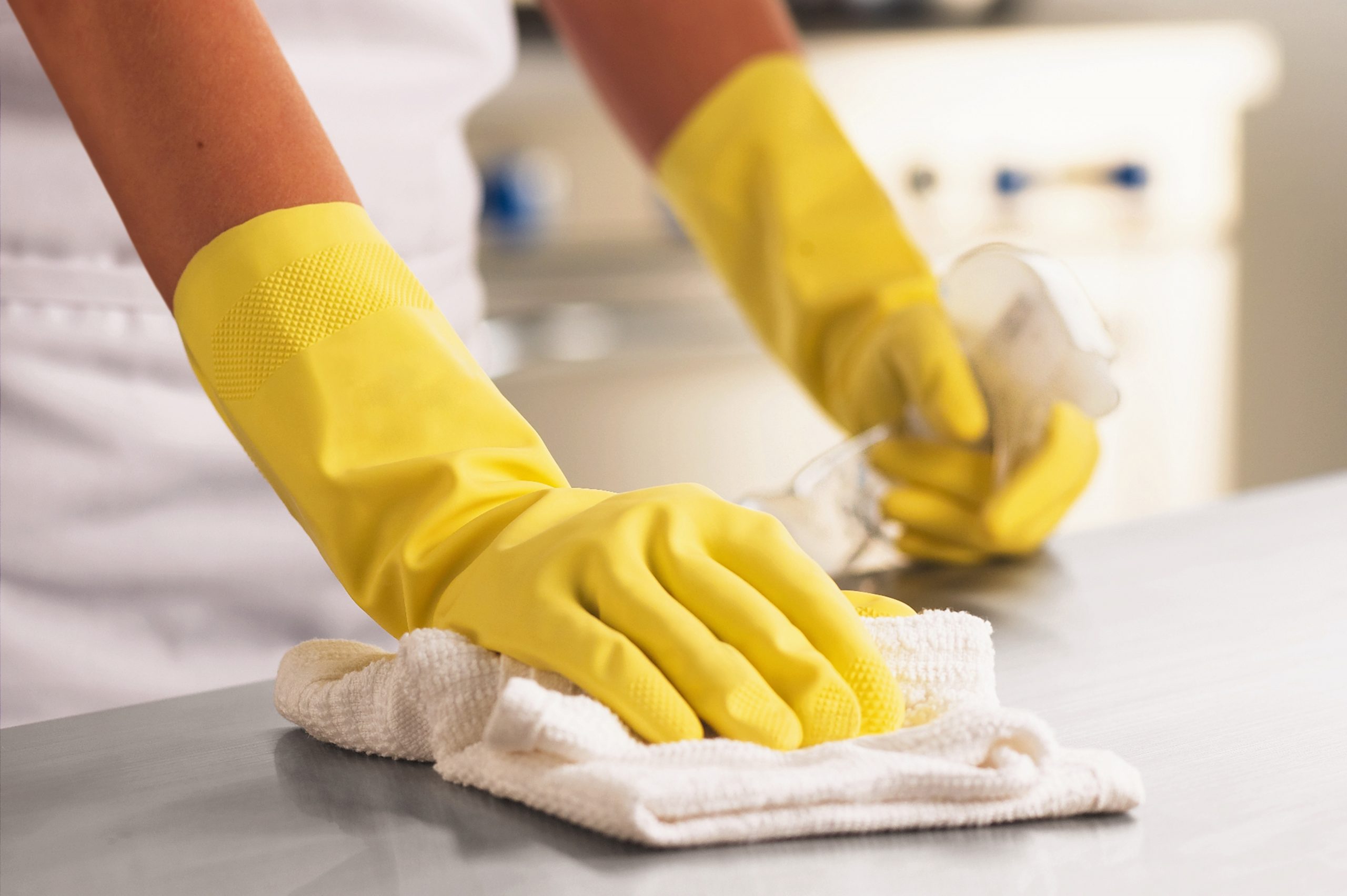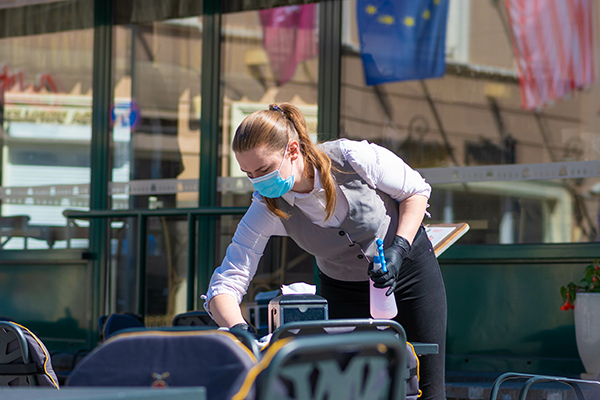Welcoming Guests Back into Your Establishments
After three long months suffering through the COVID-19 pandemic, we are finally starting to see restaurants and other foodservices across the United States begin to reopen operations. It is likely that more and more restrictions will be lifted across the country in the next few months with operations trying to recover from losses of the COVID-19 pandemic. Last month in our blogs, we discussed getting back to the basics in terms of employee health and hygiene, temperature controls, and cleaning and sanitizing fundamentals. This month, we expand on that discussion and merge with guidance offered by health authorities for reopening, and elaborate on a few resources available for foodservices, compliments of FoodHandler.
Several entities have started to release guidance, including the Food and Drug Administration, the Centers for Disease Control and Prevention (CDC), and the National Restaurant Association. While they are all somewhat similar, they each have unique approaches. One of the topics we see across all of them is the focus on employee health (one of the basics!). Your customers and employees will be more keenly aware than ever before of other individuals’ health. There is no denying that most of your employees want and need to work. Yet, whether they should work will depend on whether they are healthy and willing to follow organizational policies designed to protect the worker and clientele.
After several weeks off the job, many workers are experiencing financial strain and are motivated to work even though they may be ill. It is critical, now more than ever, that public health regulations and company policies mandating employees stay home if ill are followed. Providing employees with sick leave is a benefit that should be considered as a means to protect workers, customers, and the organization. Yes, this is a significant investment but there are returns on this, particularly if it avoids a liability claim, and can be considered a risk mitigation strategy. Some of the recently released guidelines suggest taking employee temperatures when they arrive at work as an additional safeguard to protect the public. If temperatures are checked as a screening measure, note that CDC indicates that the minimum temperature indicating a fever is 100.4°F. Your local health authority will have specific regulations and recommendations. It is important organizational policies reflect these and that these policies are implemented in a non-discriminatory manner. Organizations with operations in multiple jurisdictions may specify policy that exceeds local guidance.
Another consideration regards the use of facial coverings. Regardless of individual views on the use of face coverings and masks, they are recommended by the CDC to help slow the spread of COVID-19. There has been quite a bit of media coverage about state, municipality, and even company requirements surrounding face mask use by both employees and guests. Those in charge of foodservice operations will need to make decisions about whether masks are required, who should wear, and what type of masks should be worn. Further, it is up to that person to have enough available and to train employees on proper use, regardless of which type of mask is selected. If cloth masks are selected, employees should know how to clean the mask properly, following CDC guidelines, or the employer should assume responsibility for daily cleaning of masks. Operators should keep in mind that the Occupational Safety and Health Administration does have standards that cover personal protective equipment and these might apply to the operation, particularly if there is a requirement for staff to wear masks. Most operations require clean chef coats, uniforms, or aprons be worn by staff – consider face masks as another part of the uniform.
Considering all of these new requirements and recommendations, we hosted a special recorded webinar late last month on the topic of reopening restaurants that is now posted to the FoodHandler website. On this site will also be a running list of questions and answers. You can submit questions related to reopening of your operations and we will reply to your question with information based on the latest available science
As part of its commitment to ensuring safe food, FoodHandler has also made available a planning and operations checklist, which identifies the best practices to follow in planning for reopening in order to prevent the spread of COVID-19. Information is based on guidance from the CDC, NRA, and FDA. Because the science surrounding COVID-19 is changing rapidly, and because each community may have specific requirements for reopening, we urge you to check with your local health authority and inspector. Regardless of when you open your doors to customers again, it is important that employees and guests are protected. Suze Orman used to say, “people first, then money, then things”. With proper planning and the use of good guidance and sound judgement, everyone involved in your foodservice can be protected while you get back to restoring your businesses, and serving the good times and food for which your foodservice is known. Use of best practices will minimize risk. As we say at FoodHandler, Risk Nothing!










